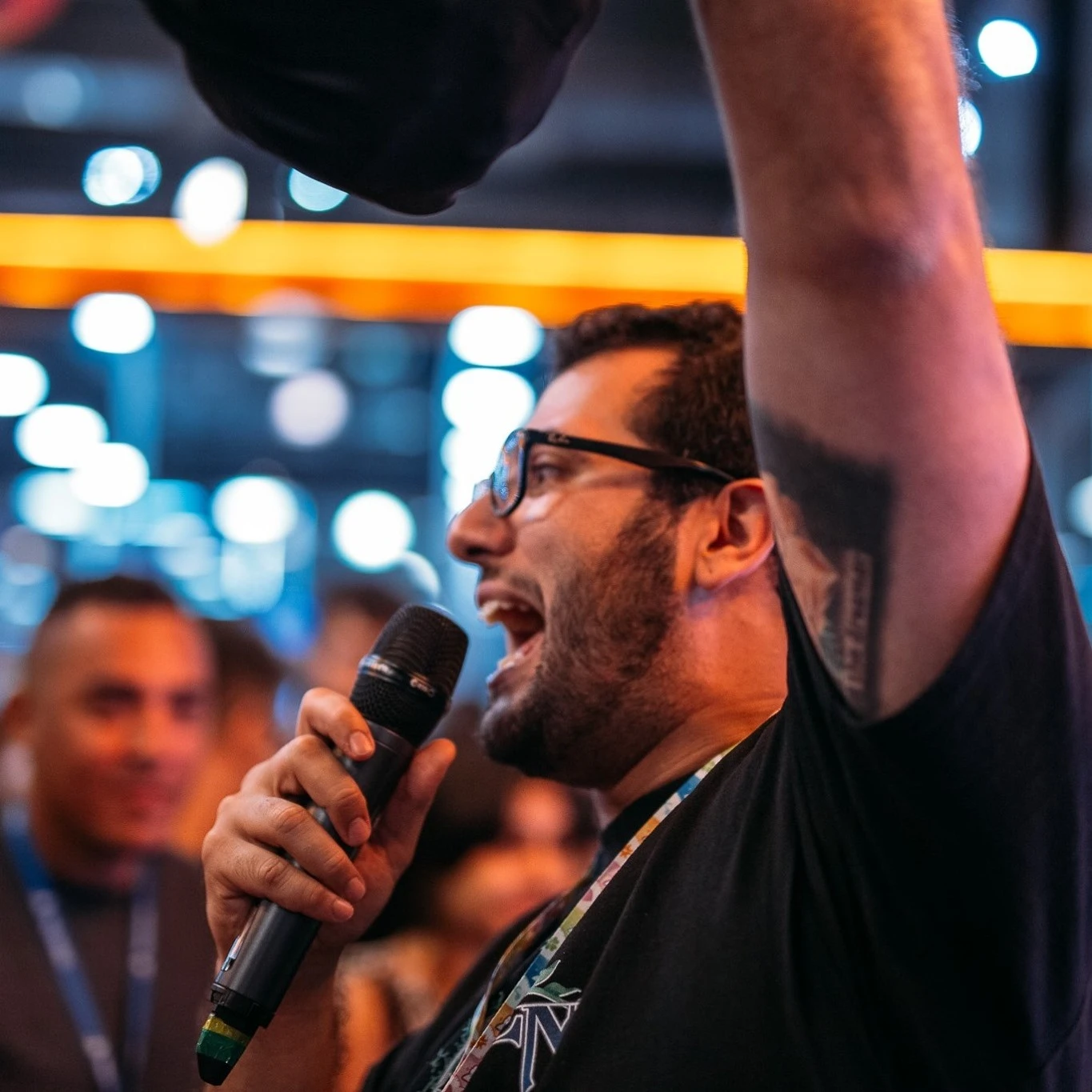Congrats Sam 🎉 With that being said, we interviewed Sam to get to know him more and understand exactly how player feedback influences his role and here are his answers:
We first asked Sam to describe his job and what his day-to-day looks like:
“The beauty of working with gaming communities is that you are literally interacting with people who love the product just as much as you do. What other job positions allow a company representative to interact with ‘customers’ as friends? My days go by as if I was researching a game that I really like, from collecting feedback to creating social media content to combing the web for organic feedback. The beauty of working at thatgamecompany is that the community we have fostered is so unique, loving, and helpful, that it hardly feels like we are on duty. We complete our days because we love our community and we love our games just as much as our players do.”
We then asked Sam how long has he been working on the player-facing field and what does he like about it:
“I’ve been managing and developing live communities for nearly a decade. It’s difficult to pick one single thing that makes me interested in our industry. If I must pick one, I’d say that meeting players face-to-face is probably the most rewarding experience to have in our field.”
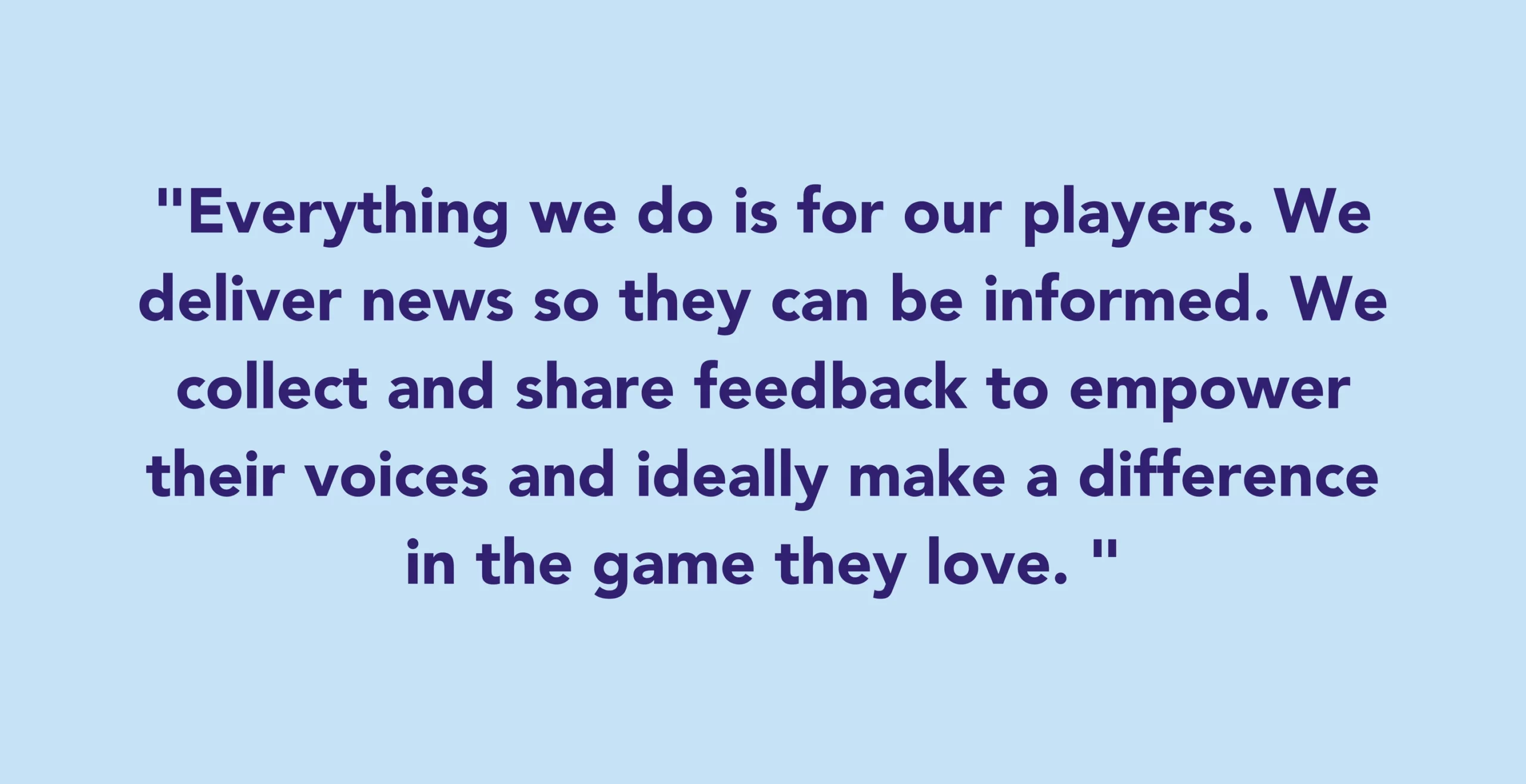
“Being able to actually TALK to them, shake hands, or even share a hug, is the REAL part of community development. Having players go back to Reddit or Discord saying how happy they were to have met you… These things speak wonders not just about your talents in community management, but it scales about how players will see the culture and vibes your game studio likely offers to employees and players alike.
I was flattered to see a player from a former project dressed up as ME for Halloween. Like, WHAT? But that’s it… I’d say the excitement of building acquaintances if not friendships, while in the field and supporting players in their personal endeavors as well as in the game, is likely to be the most rewarding part of what I do.”
We also asked him if there are any other professionals he particularly admires or learns from and to share who they are:
“Wow. I’ve worn so many hats when dealing with communities that it is difficult to name specific people who inspire me. There were two community managers I worked with in the past who were incredibly creative in deploying interactive videos to deliver messages to players (Evan Wright and Arturo Valdez). I could never forget Jay Park for being so thorough with every single piece of content she has ever put out to the community. Finally, my mentor in the industry, Daniel Kim, who taught me community management and engraved in my heart that “it doesn’t matter how good your game is unless you have a strong community to back it up.”
And a very crucial question for us, we asked Sam what’s the importance of Player Feedback for his role:
“Everything. Everything that we do when working with communities is to eventually collect, consider, and possibly influence their feedback.
Here’s the thing. Players have feedback because they care. So many CMs get scared of the innate toxicity our industry displays in the depths of Twitter, that they lose sight of why people are talking about your product, to begin with. They talk smack because they care. They care so much about your game that they get out of their way to say “ha if only you would fix your damn game.”
All they are really saying is: “I love your game and I really want to enjoy it even more.”
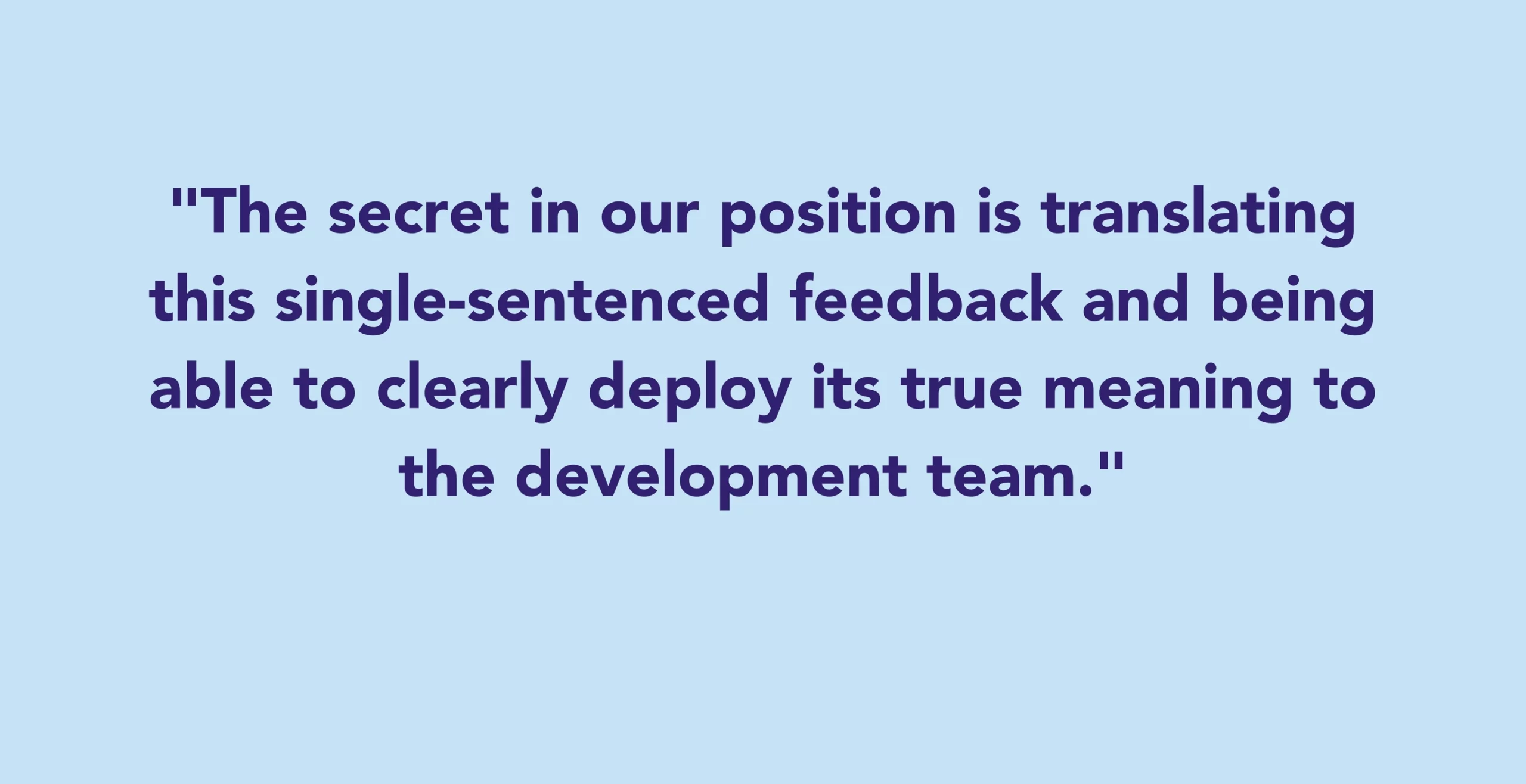
“Every live stream, each Instagram post disguised and pitched as “an Engagement post”… All of these actions culminate in collecting feedback and listening closely about what is the real experience your title provides, both within and outside of the screen.”
And how do you measure success in your role?
“Different folks perceive success differently, especially when there’s a clear direction of what are your leadership’s KPIs.
My PERSONAL success is when I see real relationships/friendships happening. Players are more likely to stick to your game long if they are able to create a bond with somebody.
If I am able to provide an environment and platform for these friendships to form… I’m successful.
If I have to befriend that player MYSELF to provide a better user experience within our game… I’m successful.
At the end of the day, all I want is for players to feel good about themselves, their community, and our game.
Whether it’s by saying our social posts make them smile, or that they are saving time out of their days to listen to me interview developers or content creators, I am successful when I am a bridge of (hopefully) positive interaction between player x player or player x game studio.”
We also asked Sam if can tell us what type of insights he finds in the voice of his player community that can help their studio make good decisions for their games:
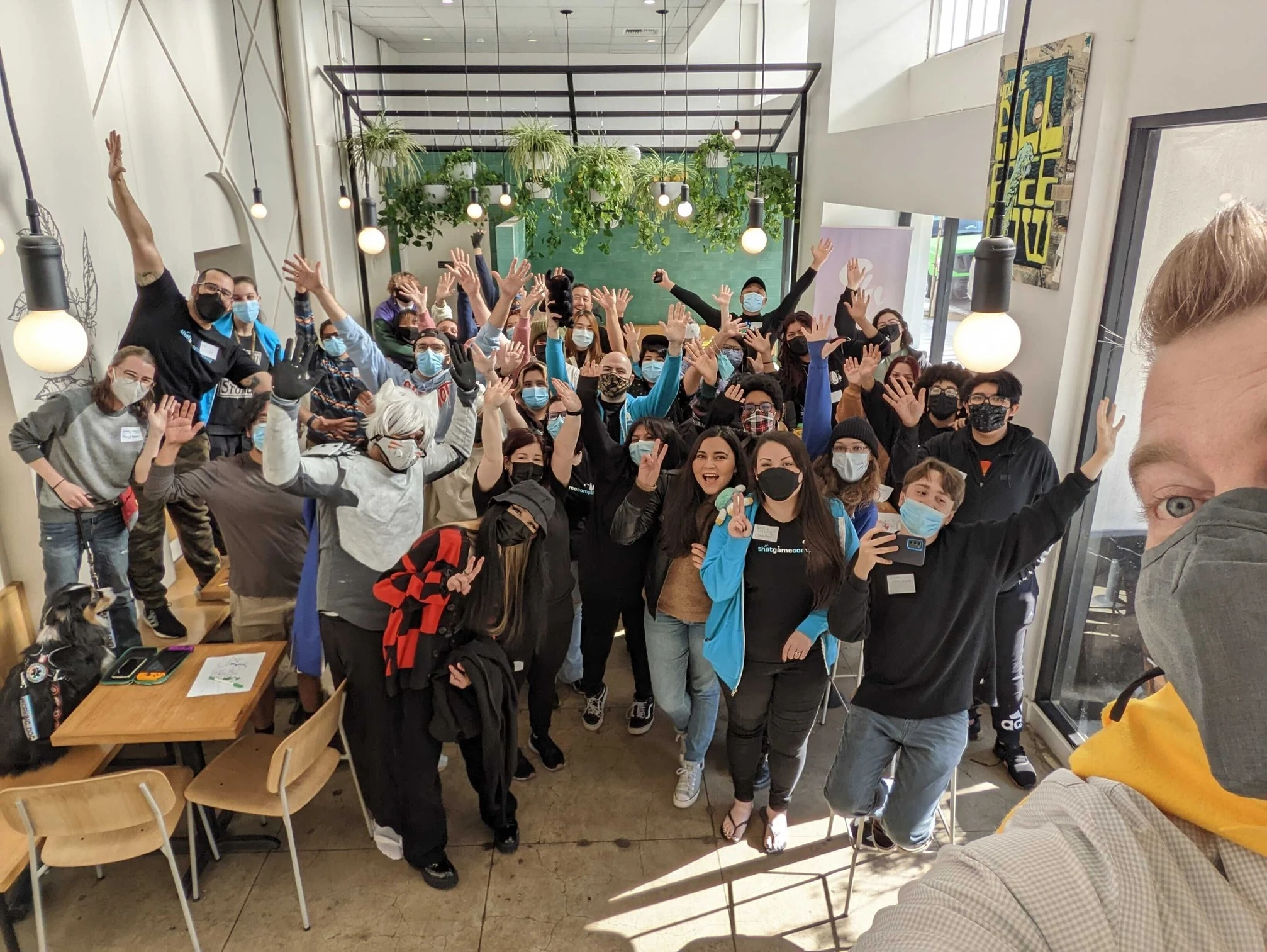
Sam’s team at thatgamecompany
“My goodness…
Social listening really. It’s so much better to be able to compartmentalize community sentiment in chunks rather than individually collecting information person by person.
Developers are mathematical folks. They need to be able to see the community’s feedback empirically… But how do you transform words into data? How do you transfer sentiment into a chart?
The CM that does it best, is likely the one to stick longer to game studios. It’s our job to develop and use tools to transform feedback into data…
– Engagement Rate
– Number of impressions
– Data-driven Positive vs Negative feedback
– Beginning from a high level into a granular level.
I guess I mentioned everything possible, but again… What does it mean to a developer that “We have 10k likes, but the comments were not positive in regards to the update?”
It doesn’t mean as much as being crystal clear about positivity vs negativity and how that is distributed across your social media and community hubs.
Good question though…”
Then, we asked if there would be one ideal insight he’d like to know from his player community, what would it be?
“Haha, I feel like I mentioned this in the question above.
How to accurately and empirically demonstrate the current sentiment of your community about targeted topics.
– A new update is out. What is being talked about?
– How do people feel about our monetization style?
– What are the sentiments and conversations around our efforts to get new players?”
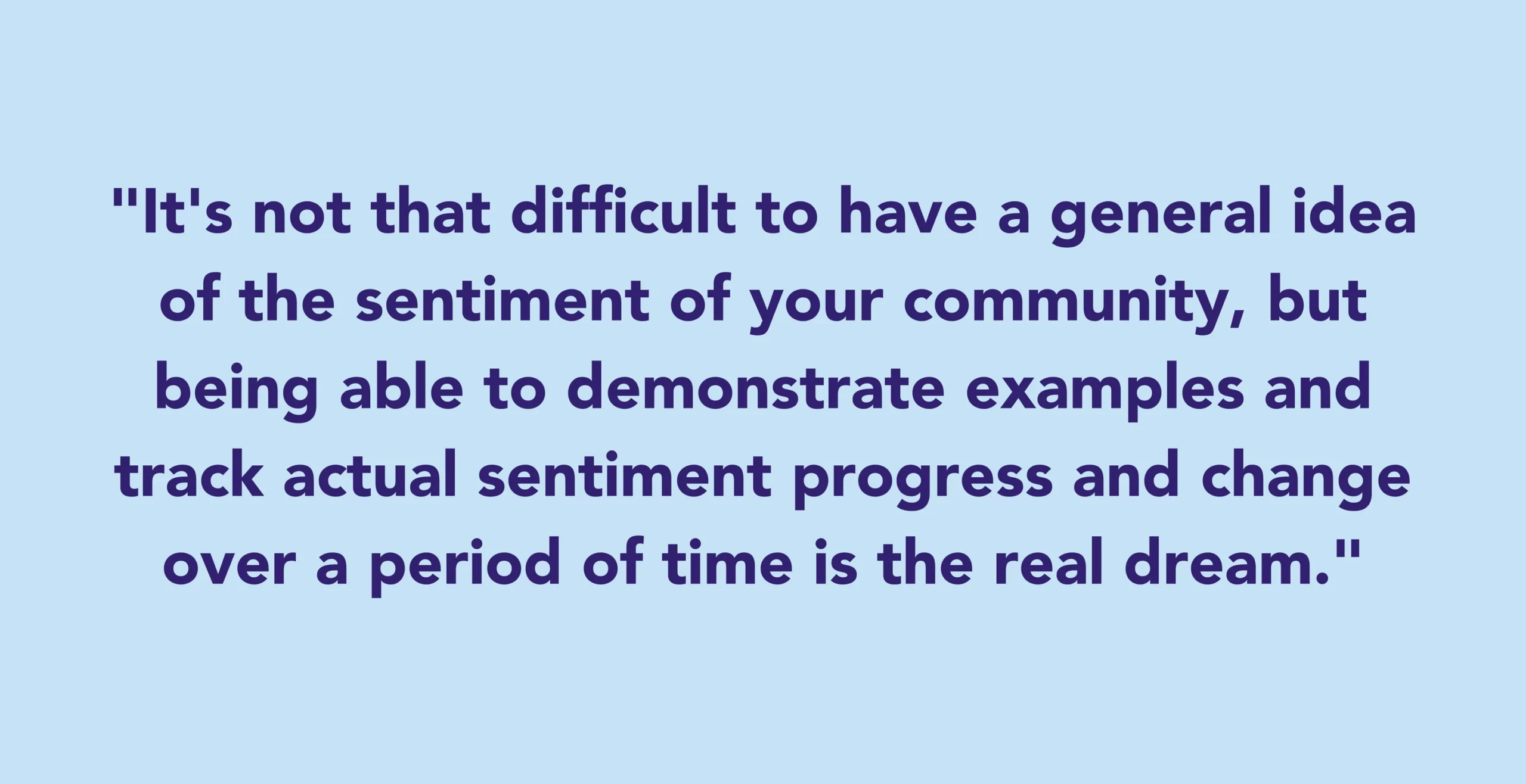
Finally, we asked Sam to give us his best advice for professionals getting started in the industry:
“Find a studio that is innovative and put out all your ideas.
In 10 years in this industry, what I hear the most from companies looking for community folks is “we want people who think out of the box.”
How about making a game-show-style stream for your Cozy game?
How about creating a series of tweets highlighting actual feedback from a new player and a veteran at the same time and having a poll to see where the community will lean towards?
How about just dressing up in a ridiculous outfit, creating the persona of a community manager that is 100% sided with the community (intern-Kun) while YOU actually represent the balance between company and community feedback? Show the community what real community management is while showing you 100% understanding of where they are coming from.
Dare to dream, dare to be yourself, and own your tone and voice.
And more than anything, try to actually really enjoy the game you are working with… It will make a big difference in how happy you are. And players will definitely know you care about the game just as much as they do.”
As the winner of the December Player Insights Champion Award from Affogata, Samuel Bandeira not only receives the honor of being recognized for his efforts in using data and player feedback to improve his games and prioritize the needs of his players, but he also receives a meaningful and lasting prize. In his name, Affogata has planted 100 trees 🌳 to offset his eco-impact and will provide him with a certificate showing the positive impact of his actions.
Thank you, Sam, for your hard work and inspiration to others in the industry 🚀
